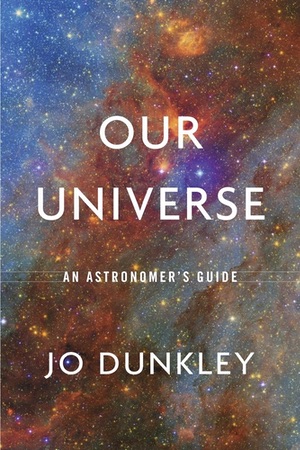Review: Our Universeby Jeff Foust
|
| unkley notes new discoveries “are being made possible with magnificent new telescopes coupled with ever-increasing computing capabilities” that may refine our understanding of the universe, or perhaps cause us to radically reconsider it. |
Jo Dunkley, a professor of physics and astrophysical sciences at Princeton, takes the reader on a journey through the universe and our understanding of it. The first chapter starts at the Earth and steps outwards through the solar system and galaxy to the edge of the observable universe, touching on topics from planetary science to cosmology in the process. Later chapters take on topics such as the birth and death of stars, dark matter and the expansion of the universe.
On one level, Dunkley does a good job explaining our current knowledge of the nature and origin of the universe, and the history of the efforts by astronomers to develop that knowledge. The book is accessible to someone without much of a background in astronomy, and mixes stories about the astronomers who made key discoveries with the discoveries themselves.
However, for those already familiar with those topics in astronomy and related fields, Our Universe doesn’t offer much in the way of new material. There also isn’t a particularly new take on the subjects in the book, in terms of a novel analysis or perspective, but rather a straightforward look at what we do know, and don’t, about the universe. That’s fine for those just getting introduced to the subject—this book is as good an introduction as any to the topic—but is less useful for those already familiar with these subjects.
In the book’s epilogue, Dunkley notes new discoveries “are being made possible with magnificent new telescopes coupled with ever-increasing computing capabilities.” The Event Horizon Telescope is a prime example of that, particularly the latter factor: it took significant advances in computing to process the petabytes of data collected by the globally distributed radio telescopes and turn that into the image released earlier this month. Such discoveries in the future, she notes at the end of the book, may refine our understanding of the universe, or perhaps cause us to radically reconsider it, and the books about it.
Note: we are temporarily moderating all comments subcommitted to deal with a surge in spam.
